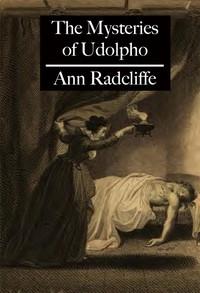Read this ebook for free! No credit card needed, absolutely nothing to pay.
Words: 5568 in 2 pages
This is an ebook sharing website. You can read the uploaded ebooks for free here. No credit cards needed, nothing to pay. If you want to own a digital copy of the ebook, or want to read offline with your favorite ebook-reader, then you can choose to buy and download the ebook.


: Old Love Stories Retold by Le Gallienne Richard - Biography; Love stories; Heine Heinrich 1797-1856; Authors German 19th century Biography
Mail to:
This is a story of Heinrich Heine and his Mathilda. At present we have only this one chapter/story of this book. This is one chapter of the more complete book by Richard Le Gallienne which contains additional true love tales about other famous people.}
Heine and Mathilde
by Richard Le Gallienne
The love story of Heine and his Mathilde is another of those stories which fix a type of loving. It is the love of a man of the most brilliant genius, the most relentless, mocking intellect, for a simple, pretty woman, who could no more understand him than a cow can understand a comet. Many men of genius have loved just such women, and the world, of course, has wondered. How is it that men of genius prefer some little Mathilde, when the presidents of so many women's clubs are theirs for the asking? Perhaps the problem is not so difficult as, at first sight, it may seem. After all, a man of genius is much like other men. He is no more anxious than any other man to marry an encyclopedia, or a university degree. And, more than most men, he is fitted to realize the mysterious importance and satisfaction of simple beauty--though it may go quite unaccompanied by "intellectual" conversation--and the value of simple woman-goodness, the woman-goodness that orders a household so skillfully that your home is a work of art, the woman-goodness that glories in that "simple" thing we call motherhood, the woman-goodness that is almost happy when you are ill because it will be so wonderful to nurse you. Superior persons often smile at these Mathildes of the great. They have smiled no little at Mathilde Crescence Mirat; but he who was perhaps the greatest mocker that ever lived knew better than to laugh at Mathilde. The abysses of his brain no one can, or even dare, explore--but, listen as we will at the door of that infernal pit of laughter, we shall hear no laugh against his faithful little Mathilde. It is not at Mathilde he laughs, but at the precious little blue-stocking, who freshened the last months of his life with a final infatuation--that still unidentified "Camille Selden" whom he playfully called "la Mouche."
"La Mouche," naturally, had a very poor opinion of Madame Heine, and you need not be a cynic to enjoy this passage with which she opens her famous remembrances of "The Last Days of Heinrich Heine":
"When I first saw Heinrich Heine he lived on the fifth floor of a house situated on the Avenue Matignon, not far from the Rond-Point of the Champs-Elysees. His windows, overlooking the avenue, opened on a narrow balcony, covered in hot weather with a striped linen awning, such as appears in front of small cafes. The apartments consisted of three or four rooms--the dining-room and two rooms used by the master and the mistress of the house. A very low couch, behind a screen encased in wall-paper, several chairs, and opposite the door a walnut-wood secretary, formed the entire furniture of the invalid's chamber. I nearly forgot to mention two framed engravings, dated from the early years of Louis Philippe's reign--the 'Reapers' and the 'Fisherman,' after Leopold Robert. So far the arrangements of the rooms evidenced no trace of a woman's presence, which showed itself in the adjoining chamber by a display of imitation lace, lined with transparent yellow muslin, and a corner-cupboard covered with brown velvet, and more especially by a full-length portrait, placed in a good light, of Mme. Heine, with dress and hair as worn in her youth--a low-necked black bodice, and bands of hair plastered down her cheeks--a style in the fashion of about 1840.
"She by no means realized my ideal Mme. Heine. I had fancied her refined, elegant, languishing, with a pale, earnest face, animated by large, perfidious, velvety eyes. I saw, instead, a homely, dark, stout lady, with a high colour and a jovial countenance, a person of whom you would say she required plenty of exercise in the open air. What a painful contrast between the robust woman and the pale, dying man, who, with one foot already in the grave, summoned sufficient energy to earn not only enough for the daily bread, but money besides to purchase beautiful dresses. The melancholy jests, which obliging biographers constantly represent as flashes of wit from a husband too much in love not to be profuse, never deluded anybody who visited that home. It is absurd to transform Mme. Heine into an idyllic character, whilst the poet himself never dreamed of representing her in that guise. Why poetize at the expense of truth?--especially when truth brings more honour to the poet's memory."
One is sorry that Heine has not risen again to enjoy this. One can easily picture his reading it and, turning tenderly to his "Treasure," his "Heart's Joy," with that everlasting boy's look on his face, saying: "Never mind, Damschen. We know, don't we? They think they know, but we know." And with what a terrible snarl he would say, "My ideal Mme. Heine!"
"My ideal Mme. Heine!" No doubt "la Mouche" thought she might have been that, had all the circumstances been different, had Heine not already been married for years and had he not been a dying man. We may be quite sure what Heine would have thought of the matter, and quite sure what she was to him. Mathilde, we know, was unhappy about the visits of the smart young lady who talked Shakespeare and the musical glasses so glibly, and who held her husband's hand as he lay on his mattress-grave, and wore a general air of providing him with that intellectual companionship which was so painfully lacking in his home. Yet we who know the whole story, and know her husband far better than she, know how little she really had to fear from the visits of "Camille Selden." To Heine "la Mouche" was merely a brilliant flower, with the dew of youth upon her. His gloomy room lit up as she entered, and smelled sweet of her young womanhood hours after she had gone. But "the ideal Mme. Heine"? No! Heine had found his real Mme. Heine, the woman who had been faithful to him for years, had faced poverty and calamity with him, and had nursed him with laughing patience, day in and day out, for years. Heine had good reason for knowing how "the ideal Mme. Heine" would have treated him under such circumstances; for little bas-bleue "Mouche" had only to have a bad cold to stay away from the bedside of her hero, though she knew how he was counting the minutes to her coming, in the nervous, hysterical fashion of the invalid. One of his bitterest letters reproaches her with having kept him waiting in this way:
"Tear my sides, my chest, my face, with red-hot pincers, flay me alive, shoot, stone me, rather than keep me waiting.
"With all imaginable torture, cruelly break my limbs, but do not keep me waiting, for of all torments disappointed expectation is the most painful. I expected thee all yesterday afternoon until six o'clock, but thou didst not come, thou witch, and I grew almost mad. Impatience encircled me like the folds of a viper, and I bounded on my couch at every ring, but oh! mortal anguish, it did not bring thee. "Thou didst fail to come; I fret, I fume, and Satanas whispered mockingly in my ear--'The charming lotus-flower makes fun of thee, thou old fool!'"
Free books android app tbrJar TBR JAR Read Free books online gutenberg
More posts by @FreeBooks

: Dennison Grant: A Novel of To-day by Stead Robert J C - Canada Fiction; Farmers Fiction; Prairie Provinces Fiction


: The Portygee by Lincoln Joseph Crosby - Grandparent and child Fiction; Spanish Americans Fiction Bestsellers American 1895-1923






